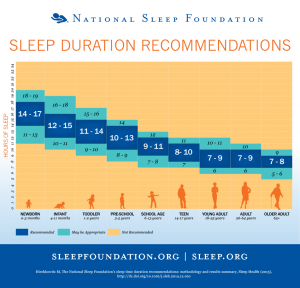 This photo probably sums up more than words the relief that I feel right now. Why might you ask? Well, I passed all of my licensing exams! So, what does that mean? Now I need to be approved for registration with the College of Naturopaths and apply for the appropriate insurance. Once this is complete, I am ready to practice as a Naturopathic Doctor and can then officially call myself a Doctor! This has been a long time coming and has required facing my own demons, overcoming past traumas, and discovering who I am aside from my profession. I have had successes, but also made some mistakes that have helped me in the long run. Ultimately, I am truly thankful for these experiences and for the practitioner they will have helped shaped me into. No “acceptance speech” would be without its “Thank you”, and so, what follows is my condensed list.
This photo probably sums up more than words the relief that I feel right now. Why might you ask? Well, I passed all of my licensing exams! So, what does that mean? Now I need to be approved for registration with the College of Naturopaths and apply for the appropriate insurance. Once this is complete, I am ready to practice as a Naturopathic Doctor and can then officially call myself a Doctor! This has been a long time coming and has required facing my own demons, overcoming past traumas, and discovering who I am aside from my profession. I have had successes, but also made some mistakes that have helped me in the long run. Ultimately, I am truly thankful for these experiences and for the practitioner they will have helped shaped me into. No “acceptance speech” would be without its “Thank you”, and so, what follows is my condensed list.
To start with, first and foremost is to do what most Grammy – award winning artists do, and that is, thank my Lord and Saviour Jesus Christ. I do realize that I may receive judgement, criticism, disdain, etc. for this comment; but I truly cannot take the credit for what has transpired. My strength is in Him alone, and I could not have overcome what I have without Him. That being said, I have received so many prayers and support from my family and church family over the past 8 years, and I am truly grateful to have so much love surrounding me. My family has shaped me into the woman that I am, and I cannot thank them enough for pushing me when I needed it and encouraging me along the way, even if my own mother thought I was going to be a witch doctor 🙂 (it’s okay she is now my biggest fan).
Throughout this whole journey, I have had my faithful and loving husband by my side. I cannot say how truly blessed I am to have had him over the past 8 years to comfort me through the tears and walk with me through the pain, but also to rejoice with me in the victories.
Finally, as always, I want to thank all of the beautiful souls that I have met along the way, specifically, the patients that I have had the pleasure of working with. I have learned so much and have been so blessed by you all. Walking with you has helped shaped me into the practitioner I want to be and will be. Also, thank you and much love to you my readers for all of your constant support!
I will keep you all posted in the following weeks as to when I am accepting patients!
Have you benefitted from reading this blog? Know someone that would benefit as well? Share, Like, Comment, or Tweet this article, and let me know what you think.
Some of the information provided above may not be appropriate for everyone, please consult with your doctor before trying any of the above. If you are interested in Naturopathic Medicine and wanting a different approach to your health care needs, contact Elisha Cook via the contact portion of this website.



